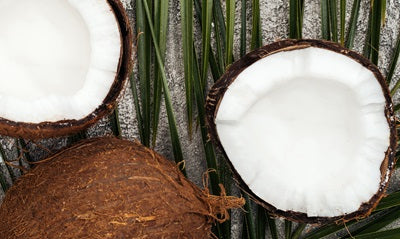
Does it matter if my MCT oil came from Coconut oil or Palm Kernel oil?
It does not. Technically. Let's see why.
MCT oil is a combination of medium chain fatty acids that contain 6, 8, 10 and 12 Carbon atoms - C6 (Caproic acid), C8 (Caprylic acid), C10 (Capric acid) and C12 (Lauric acid). While C12 is technically a medium chain fatty acid, in terms of how our body processes it, it is actually a long chain. C6 is typically present in trace amounts only. That's why you need to look for an MCT oil that is almost completely C8 and C10 only. (There is also aversion in the market that is 100% C8.) More information is available in my other blog on the subject.
Coconut oil is about 9% C10 and 6% C8. By using a process called 'Fractionation', it is possible to separate the C8 and C10 fatty acids from Coconut oil. The MCT oil so manufactured is called Coconut MCT Oil or Fractionated Coconut oil. People tend to confuse this oil with the Coconut oil itself. Cheap versions of this MCT oil will also include C12 since it is available in abundance (about 50%) within the Coconut oil and can be separated using the same fractionation process.
The Coconut tree and Palm tree are actually cousins within the palm family. Oil made from the pulp of the Palm fruit is called Palm Oil. However, this oil has practically no C8 and C10, and only has traces of C12. It is mostly made up of C15 and C18 chains. Therefore, one can't obtain C8/C10 MCT oil from the Palm oil. However, Palm Kernel Oil which is manufactured from the Palm fruit kernel, has good amounts of MCT's, particularly the C8 and C10. So, it is possible to obtain the C8/C10 MCT Oil from the Palm Kernel Oil.
Thus, the MCT oil can be made from only Coconut oil or from Palm Kernel Oil or from a mix of both. Therefore, purely technically speaking, as long as our objective is to get a blend of C8 and C10 fatty acids in a certain proportion, it doesn't matter where they came from. The end product is just a mix of C8 and C10. HOWEVER, there are people who are allergic to coconuts. These people should avoid Coconut-derived MCT oil unless they can confirm that the allergen proteins have been removed from it. For those people, the Palm Kernel derived MCT oil could be an alternative.
Sundar S.


Comments
Leave a comment